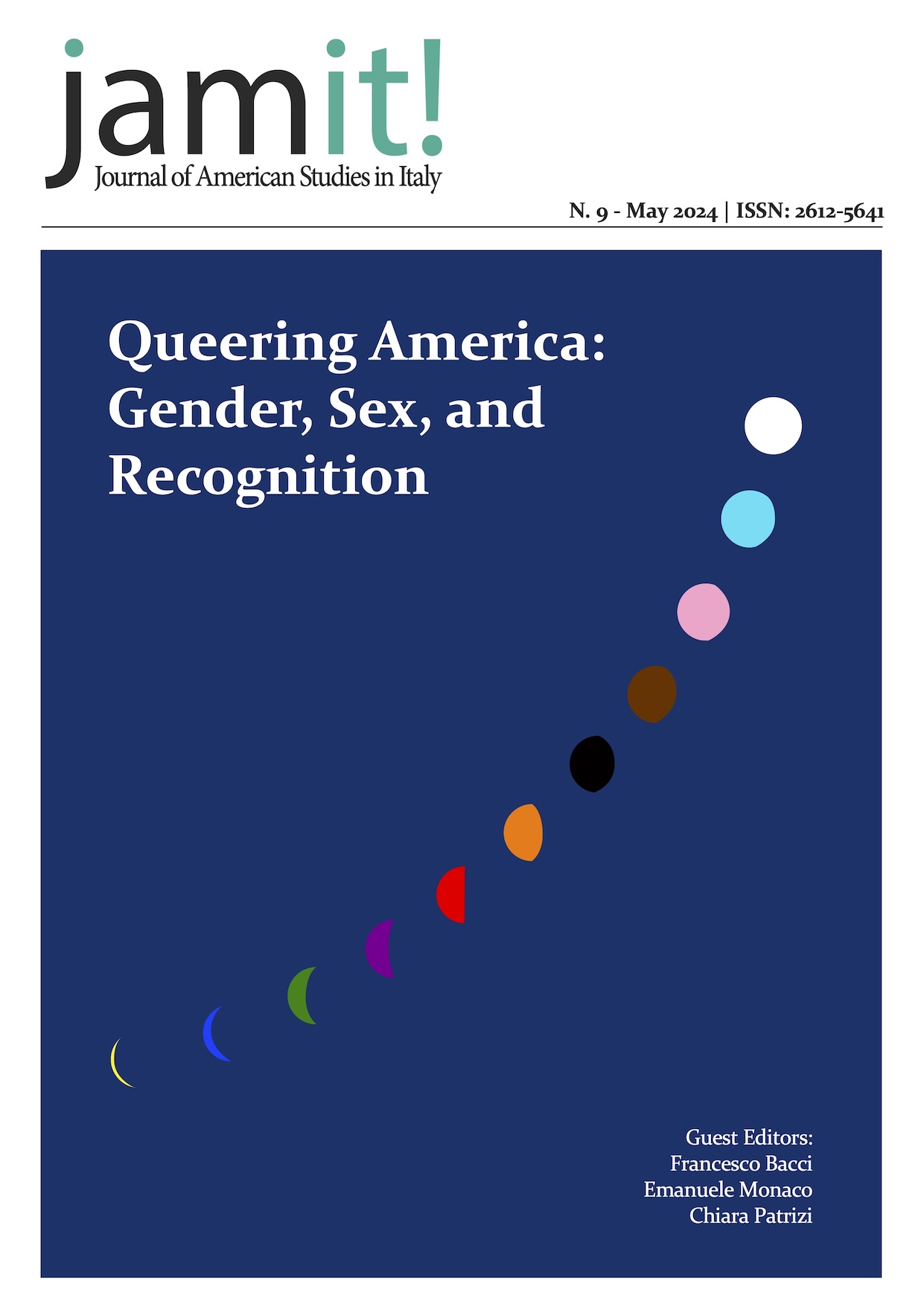Let Me Get this Queer
Recognition of Age and Sexuality in Grace and Frankie
DOI:
https://doi.org/10.13135/2612-5641/7629Keywords:
queerness, recognition, sitcom, aging, sexualityAbstract
The purpose of this paper is to examine how older queer identities are represented in the contemporary American sitcom Grace and Frankie (2015 – 2022). By watching this TV show through the work on the depiction of sexuality in American family sitcoms provided by Tison Pugh in his book The Queer Fantasies of the American Family Sitcom (2018), this paper argues that different, unsung queer realities are starting to get more recognition in the U.S. television system. Grace and Frankie’s political statement of “being queer and in my 70s” and Pugh’s theoretical framework on the representation of queerness in U.S. television, are the tools this paper uses to analyze how a contemporary American comedy show deals with the intersection of age and sexuality.
Downloads
Published
Issue
Section
License
Authors who publish with this journal agree to the following terms:
- Authors retain the copyright and full publishing rights for their submissions to the journal.
- Authors grant the journal right of first publication with the work simultaneously licensed under a Creative Commons Attribution-NonCommercial-NoDerivatives 4.0 International License that allows others to share unedited work for non-commercial purposes with an acknowledgement of the work's authorship and initial publication in this journal.
- Authors are able to enter into separate, additional contractual arrangements for the non-exclusive distribution of the journal's published version of the work (e.g., post it to an institutional repository or publish it in a book), with an acknowledgement of its initial publication in this journal.
- Authors are permitted and encouraged to post their work online (e.g., in institutional repositories or on their website) prior to and during the submission process, as it can lead to productive exchanges, as well as earlier and greater citation of published work (See The Effect of Open Access).





